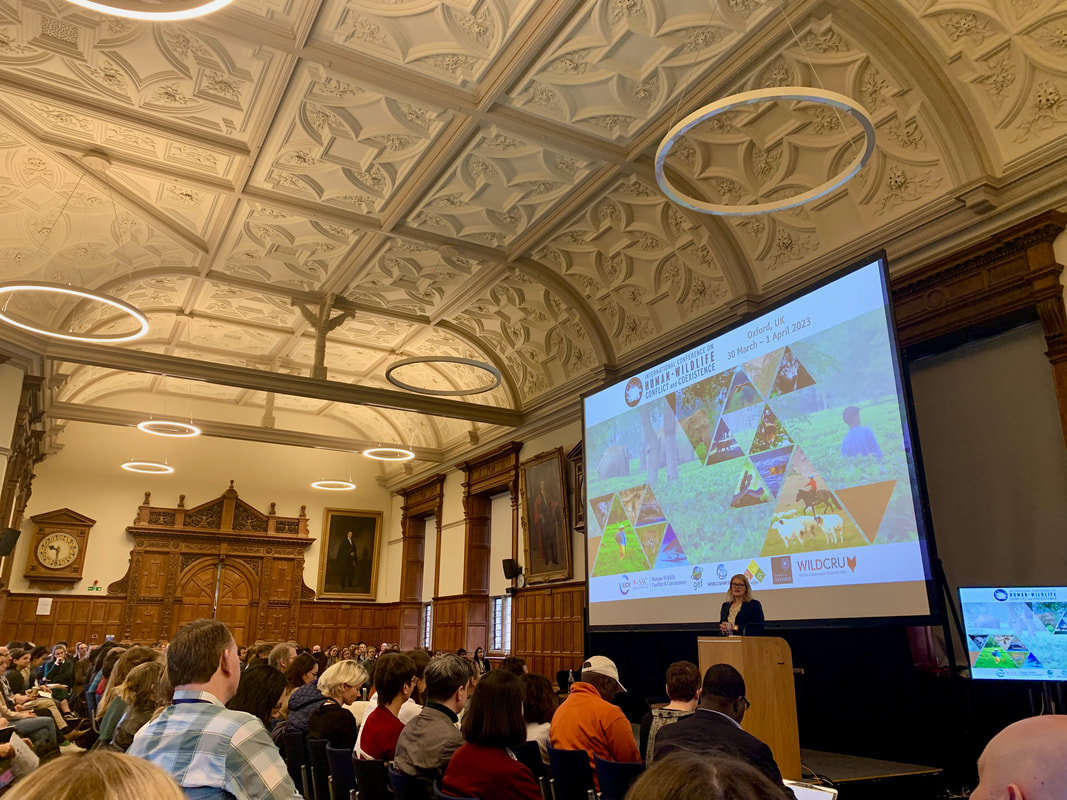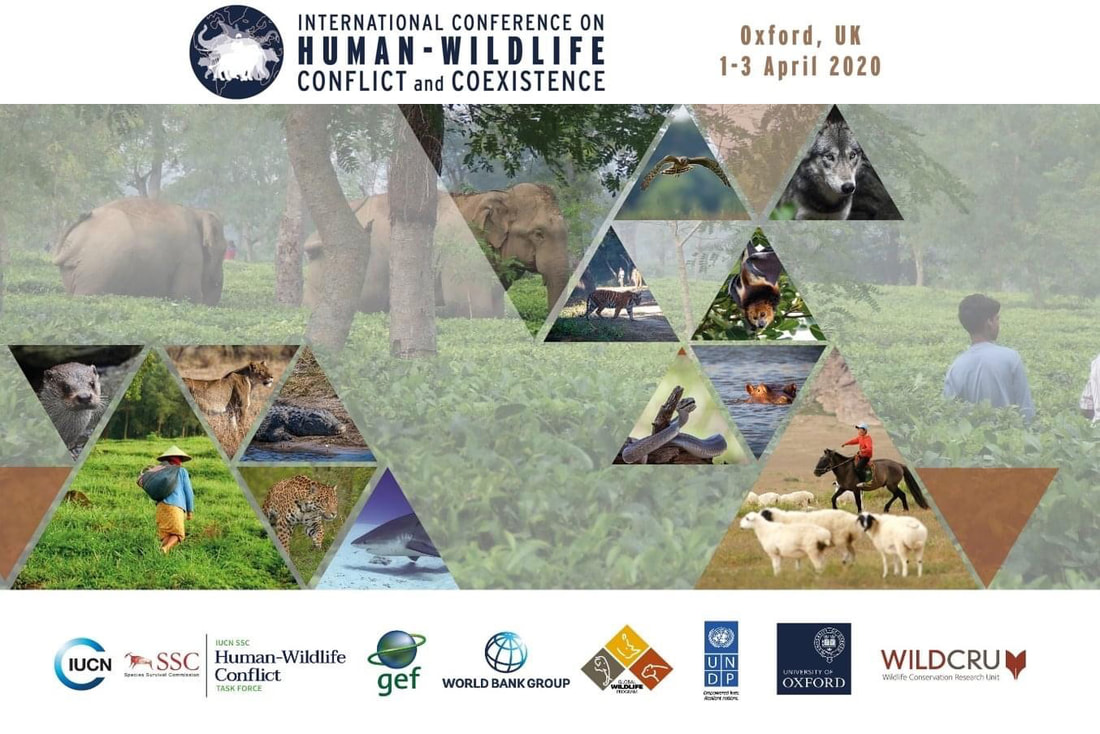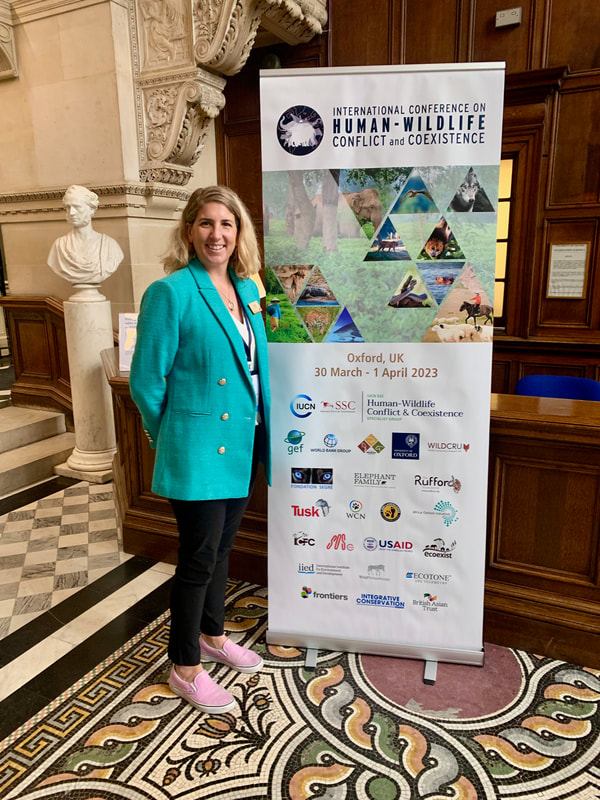In light of human-wildlife conflict being written into international policy framework for the first time in the UN’s Convention of Biological Diversity 2022, the conference was organised by the IUCN SSC Human-Wildlife Conflict and Coexistence Specialist Group. Co-hosted with the GEF-funded and World Bank-led Global Wildlife Program and Oxford University’s Wildlife Conservation Research Unit (WildCRU), the conference provided a forum for information exchange and fruitful discussions and workshops on a variety of topics from ecology and animal behaviour to economics, psychology, and anthropology. Jane particularly enjoyed the keynote addresses by WildCRU founder David Macdonald and current WildCRU Director Amy Dickman, as well as a panel discussion about reflecting on failures.
With practitioners working with everything from lions and sharks to gorillas and elephants, some discussions were specialised to specific species groups or geographical areas. What Jane found most intriguing was the surprising similarities between the challenges and solutions to conflict found across vastly different geographical areas and species. It is these similarities that inspired the IUCN SSC HWC Specialist Group to develop the first ever international guidelines for tackling HWC. Launched on the first day of the conference, the Guidelines outlines foundational principles and practical guidance for best practice in human-wildlife conflict mitigation. The Guidelines highlight common themes in tackling human-wildlife conflict issues, such as drivers of conflict, policy considerations, livelihoods, community and stakeholder involvement, indigenous knowledge and effectively assessing conflict and conflict mitigation.
Another general theme of the conference was the need for additional resources to be dedicated to human-wildlife conflict alleviation. The Kunming-Montreal Global Biodiversity Framework (GBF) calls for a commitment to mobilise at least $200 billion a year by 2030 to close the biodiversity financial gap, which is estimated to currently be a staggering $700 billion per year. International governments of developed countries recently committed to $5.33 billion to halt biodiversity decline in developing nations as part of the 8th phase of the Global Environment Facility (GEF), which will run from 2023 to 2026. So long as these funds filter down to practitioners on the ground, they will go a long way to helping implement effective solutions for sustainable mitigation of human-wildlife conflict.
CCB’s commitment to finding ethical and feasible solutions for human-wildlife conflict has made us a leader in this field. Our attendance at this conference equips us with the most up-to-date knowledge of innovations and developments in the field and helps strengthen networks within the human-wildlife conflict and space for improved effectiveness.
CCB would like to extend our thanks to conference organiser James Stevens and the team at the IUCN Human Wildlife Conflict and Coexistence Specialist Group for inviting us to take part in this momentous conference.




 RSS Feed
RSS Feed
